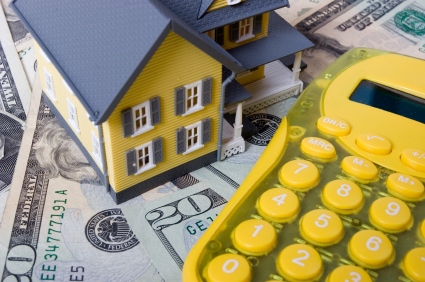Mortgage Scams
Mortgage scams are increasing, especially in the current financial environment due to increases in foreclosures, declining housing prices, and decreased demand, placing pressure on lenders, builders, and home sellers.
These and other market participants are repeating and modifying old schemes such as property flipping, builder-bailouts, short sales, and foreclosure rescues.
Additionally, they are adding new schemes such as reverse mortgage fraud, credit enhancements, condo conversion, loan modifications, and pump and pay.
This is in response to tighter lending practices.
The problem is getting worse in the United States, and with recent economic stimulus legislation, further funding streams are now available to be used in mortgage scams. The scams are relatively low risk and high yield returns.
What are the Mortgage Scams?
There are
usually two main categories - scams for property, and scams for profit.
Scams for Property
This is where the applicant makes misrepresentations for the purpose of purchasing a property for a primary residence, usually with a single loan. Applicants exaggerate their income and hide their true debt.
Their intent however, is to repay the loan.
Scams for Profit
This usually involves multiple loans with an elaborate scheme to get the proceeds from property sales. Appraisals and loan documents are commonly grossly inaccurate with participants often being paid for their participation.
Some of the popular products associated with scams for profit include:
- Sub prime loans
- Home equity conversion mortgage loans
- Home equity lines of credit
- Option-adjustable rate mortgage
- Alt-A loans

The FBI's site provides further detail on mortgage scams, and in its report identified the main emerging mortgage scams as:
- Reverse mortgage scams. A reverse mortgage is a loan available to people over 62 years of age designed to release the home equity in their property as one lump sum or multiple payments. The home owner is not required to repay the loan up to their death, or when the home is sold, or until they go into a nursing home. Usually when the home owner dies the property is sold, and any value in excess of the mortgage will be returned to the estate. The government has some information available about reverse mortgages and what you should look for. This information can be obtained by calling HUD at 1-800-569-4287. More information is available at HUD’s website
- Credit enhancements. This is when people fraudulently boost their credit histories and credit scores, or simply boost their credit-worthiness. This can take a number of forms, including the selling of credit histories and scores [so, non-related people will use someone else’s good score to boost their own]. The FBI is also noted builders who were depositing funds into a new home buyer’s account, so that they could qualify for a loan - only to remove the funds after closing
- Foreclosure scams
- Builder bailout scams - condo conversions. Builders who found themselves with an excess amount of inventory sometimes would offer to sell the condos to investors in a 'no risk' environment. The builders promised to find tenants for the investors, so there would be no risk of them losing money. The builders claimed they would manage the building and collect rents - but didn’t. The FBI also investigated cases where builders inflated the value of the condos
- Builder bailout scams - pump and pay. The FBI stated they found builders who worked with 'co-conspirators' to falsely inflate the value of property. The property was refinanced and the false equity redistributed to the scammers
- Foreclosure rescue scams
- Home ›
- Mortgage Scams